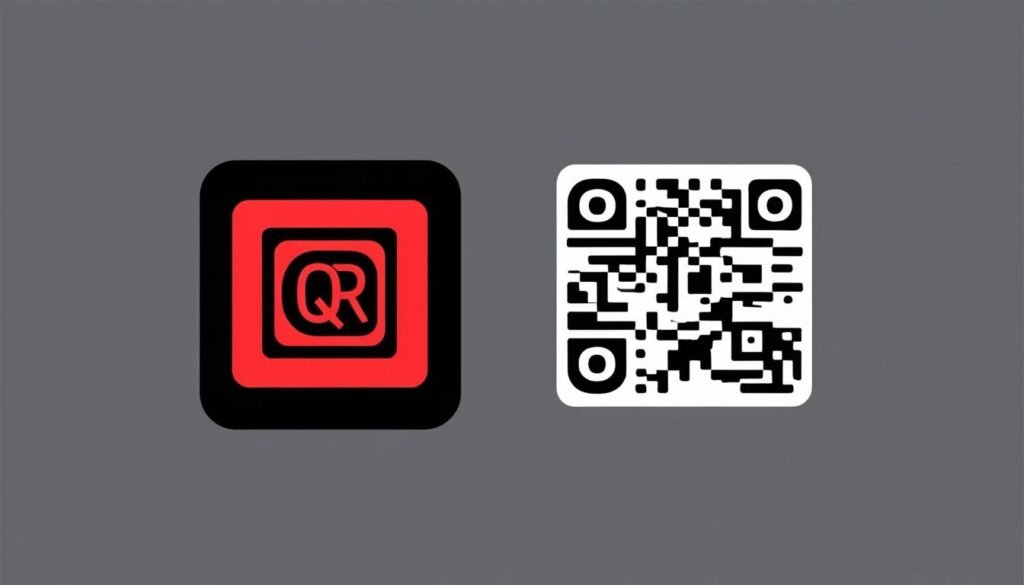Experts predict a major shift in shopping technology as QR codes begin to replace traditional barcodes in UK supermarkets, enhancing customer experiences and operational efficiencies.
A significant shift in shopping technology is on the horizon as experts predict the replacement of traditional barcodes with QR codes in supermarkets across the UK. This transition, heralded as a necessary upgrade for retailers, is expected to reshape shopping experiences and drive improvements in operational efficiencies.
Anne Godfrey, the chief executive of GS1 UK, an international non-profit organisation responsible for barcodes, indicated that nearly half of British retailers have already modernised their till systems to handle the new QR codes. Speaking to The Sun, Godfrey noted that the Covid pandemic accelerated the adoption of QR codes, as consumers became accustomed to using them in hospitality settings for accessing menus and information. “Very soon we will say goodbye to the old-fashioned barcode, and every product will just have one QR code that holds all the information you need,” she stated.
The current barcode system, which has been a staple in retail for over 50 years, typically contains seven pieces of basic information such as product name, manufacturer, and price. In contrast, QR codes can store much more detailed data, allowing customers to access extensive product information including ingredients, allergens, and even recipe suggestions. Godfrey explains that modern consumers demand “much more” from their shopping experiences than what traditional barcodes offer.
This transition is not merely a cosmetic change; it is part of a broader technological evolution within the retail sector. According to a study commissioned by GS1, 96% of leading UK retail executives anticipate another wave of technological transformation in the industry, suggesting that failure to adapt could result in companies being left behind. Presently, 46% of retailers have implemented QR code technology at their checkouts, with an additional 52% planning to do so within the upcoming year.
The move towards QR codes is already underway in various locations, including tests at major supermarket chains like Morrisons. Notable global brands such as PepsiCo, Procter & Gamble, L’Oréal, Amazon, and Walmart are also integrating these codes into their systems, with a complete international rollout expected by 2027. This marks a significant evolution in retail operations, as the QR code system is anticipated to enhance customer engagement and streamline processes.
Godfrey described the invention of the barcode as one of the “great, untold stories” of the modern world, stating that it is used more frequently than Google in daily transactions. However, she acknowledged the impending obsolescence of this technology, saying, “We won’t celebrate the death of the humble barcode, but it is time to say a long goodbye to it.”
As businesses continue to explore and implement AI and automation technologies alongside these advancements, the coming years will likely witness a transformation in not only how consumers interact with products but also how retailers manage operations, ultimately driving growth and innovation in the industry.
Source: Noah Wire Services
- https://tech.slashdot.org/story/24/12/30/2219222/qr-style-codes-could-replace-barcodes-within-two-years – Corroborates the prediction that traditional barcodes will be replaced by QR codes, and highlights the enhanced functionality of QR codes, such as embedding sell-by dates and allergens.
- https://tech.slashdot.org/story/24/12/30/2219222/qr-style-codes-could-replace-barcodes-within-two-years – Mentions that the Covid pandemic accelerated the adoption of QR codes as consumers became accustomed to using them in various settings.
- https://orcascan.com/customer-stories/how-orca-scan-helped-gs1-uk-accelerate-gs1-digital-link-adoption-137fedac – Details the implementation and adoption of QR codes powered by GS1, including the involvement of GS1 UK and the benefits of dynamic QR codes.
- https://www.thegrocer.co.uk/analysis-and-features/second-barcode-revolution-are-you-ready-for-qr-codes/694839.article – Explains the limitations of traditional barcodes and the additional data capabilities of QR codes, such as batch numbers, expiry dates, and product information.
- https://www.thegrocer.co.uk/analysis-and-features/second-barcode-revolution-are-you-ready-for-qr-codes/694839.article – Discusses the ongoing trials and adoption of QR codes by major supermarket chains like Tesco and Woolworths, and the benefits in reducing waste and improving supply chain efficiency.
- https://www.gs1uk.org/sites/default/files/QR%20codes%20powered%20by%20GS1%20booklet.pdf – Provides detailed information on the capabilities of QR codes powered by GS1, including their ability to store extensive product information and enhance supply chain visibility.
- https://www.gs1uk.org/sites/default/files/QR%20codes%20powered%20by%20GS1%20booklet.pdf – Highlights the potential of QR codes to improve customer engagement, streamline processes, and meet new legislative demands for trusted data.
- https://orcascan.com/customer-stories/how-orca-scan-helped-gs1-uk-accelerate-gs1-digital-link-adoption-137fedac – Mentions the pilot program by GS1 UK and the success in adopting QR codes among retail brands, paving the way for a global rollout.
- https://www.thegrocer.co.uk/analysis-and-features/second-barcode-revolution-are-you-ready-for-qr-codes/694839.article – Notes the involvement of global brands in integrating QR codes into their systems and the expected complete international rollout by 2027.
- https://www.gs1uk.org/sites/default/files/QR%20codes%20powered%20by%20GS1%20booklet.pdf – Describes how QR codes can drive efficiency, improve inventory management, and reduce waste by encoding additional data such as batch numbers and expiry dates.
- https://tech.slashdot.org/story/24/12/30/2219222/qr-style-codes-could-replace-barcodes-within-two-years – Quotes Renaud de Barbuat, the president and chief executive of GS1, on the ambition to have all retailers able to read next-generation barcodes by the end of 2027.
















